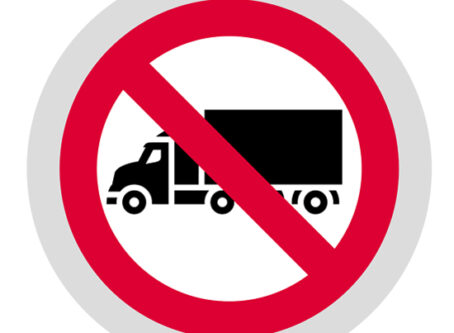OOIDA: States need to prioritize truck parking
During the I-81 Corridor Coalition’s Truck Parking Technical Roundtable, the Owner-Operator Independent Drivers Association explained to private and public stakeholders why state governments need to put truck parking on top of their to-do list.
On Thursday, June 23, The Federal Highway Administration hosted its second roundtable discussion regarding truck parking along the Interstate 81 corridor. Several representatives from the public and private sectors took part, including OOIDA Executive Vice President Lewie Pugh.
Representing the private sector during opening remarks, Pugh highlighted the importance of truck parking for every state throughout the nation. To start, the parking crisis is nothing new, he said.
“Since before I started driving truck over-the-road in 1994 there have been parking issues,” Pugh said. “This problem has gotten worse year after year. Many factors have contributed to the shortage: more trucks on the road, less truck stops, rest areas being closed by states, lack of flexibility in hours-of-service. This isn’t a problem that happened overnight so it won’t be fixed overnight, but fixing is what we need to start doing.”
Pugh mentioned that since he joined the OOIDA Board of Directors in 2004 he has attended numerous workshops, listening sessions and roundtable discussions. Yet, the truck parking crisis continues.
Although several regional, state and local governments have truck drivers on their respective freight advisory committees and working groups, Pugh urged all states to include professional drivers on relevant panels.
Another issue Pugh brought up was technology, including awareness systems like the Truck Parking Information Management System. Installed in eight Midwestern states, the system informs drivers how many truck parking spaces are available at rest areas downstream the interstate. Pugh said that states need to address expanding capacity first and foremost.
“Funding for technology, while quick and easy to implement, does little to improve conditions for drivers,” Pugh said. “Instead, we encourage states to pursue available federal funding for projects that will build capacity. The funds have always been available, but not enough states are prioritizing these types of projects. Truck parking must become a priority.”
That funding has expanded thanks to the passage of the Infrastructure Investment and Jobs Act. Transportation Secretary Pete Buttigieg has highlighted the Department of Transportation programs that can be used for truck parking. Those programs include the Surface Transportation Block Grant Program, the National Highway Freight Program, the Highway Safety Improvement program, the National Highway Performance Program, and the Congestion Mitigation and Air Quality Improvement program.
Lastly, Pugh informed stakeholders that rhetoric suggesting that truckers need to plan better needs to end.
“A trucker’s day constantly changes. Unexpected weather, traffic, accidents, delays in loading and unloading and road construction are just some of the things truckers encounter through no fault of their own,” Pugh said. “Finally, none of these things matter if the number of trucks exceed the number of parking spaces. No matter how well a trucker plans, he can’t park if the spaces aren’t available.”
The three-session virtual roundtable conversation is more than just another discussion. The first two sessions were spent identifying truck parking issues and needs. During the next session, scheduled for June 29, stakeholders are expected to discuss possible solutions.
To register for the final session on June 29, click here.
After the roundtable sessions, the I-81 Corridor Coalition plans to assess the feasibility and effectiveness of parking response strategies. That will guide the coalition in developing a truck parking program for the corridor.
I-81 corridor truck parking meeting: Day 2
The I-81 Corridor Coalition’s truck parking sessions have been positive so far, with the second session on Thursday providing a lot of insight regarding what state transportation leaders are seeing in their respective states.
In addition to Pugh, two Federal Highway Administration representatives gave opening remarks. Freight Office Director Caitlin Hughes and Virginia Division Administrator Thomas Nelson Jr. Hughes assured stakeholders that the federal government is working on finding solutions.
“If there is any doubt, we are unified at DOT,” Hughes said. “We have the support of the secretary. Secretary Buttigieg has been very interested in truck parking. He plans to chair (the National Coalition on Truck Parking’s) next meeting. We also work hand in glove with the Federal Motor Carrier Safety Administration. We are all in this together.”
Hughes has been a champion of truck parking within the federal government. She has staff members assigned to the truck parking area.
Virginia recently updated its statewide long-range transportation plan. It found that the I-81 corridor makes up nearly half of the state’s total truck demand. Nelson mentioned that from 2015 to 2021, Virginia added more than 600 parking space along the state’s corridors. However, the state needs about 3,200 additional spaces to meet peak demand. If nothing improves, Virginia is projected to need more than 8,500 additional parking spaces to meet the expected peak demand in 2045. LL









